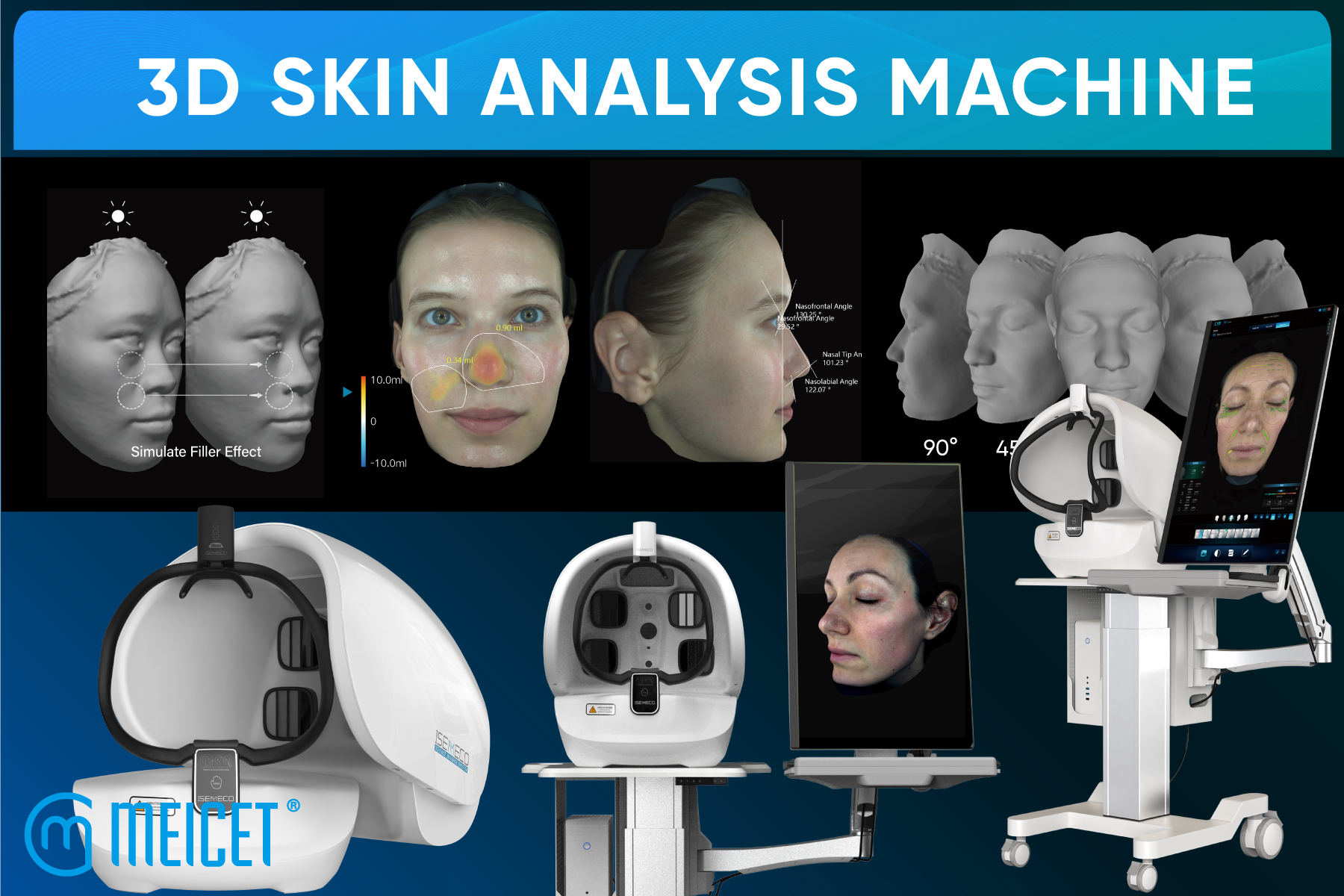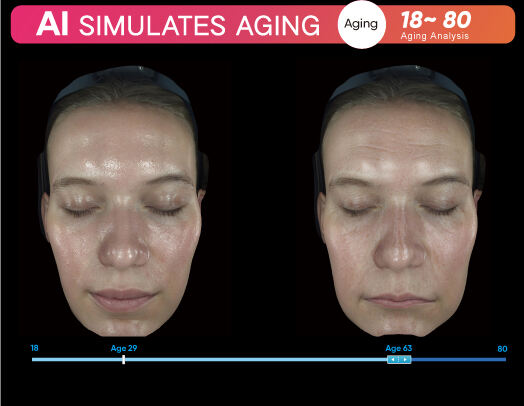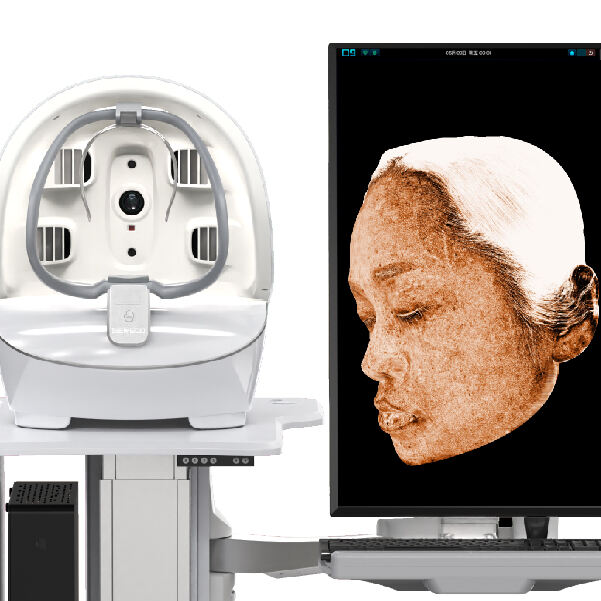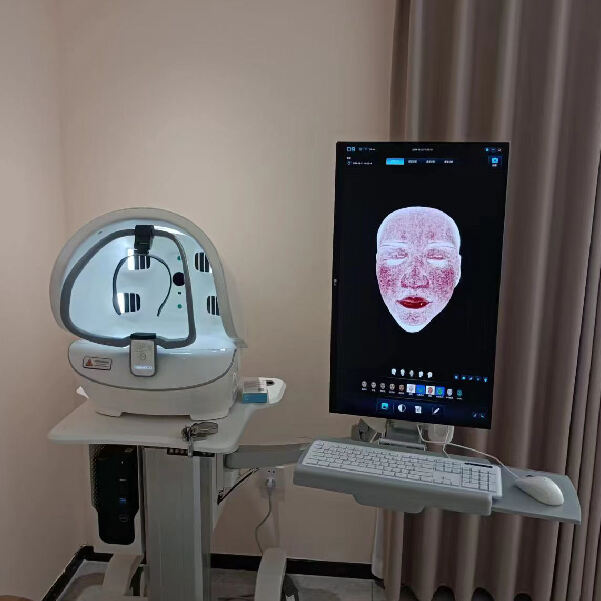How does the 3D Skin Analysis machine aid plastic surgeons and aestheticians in diagnosis?
How does the 3D Skin Analysis machine aid plastic surgeons and aestheticians in diagnosis?
The MEICET 3D Skin Analysis machine has revolutionized the way plastic surgeons and aestheticians diagnose and treat skin conditions. This cutting-edge technology provides a comprehensive and detailed analysis of the skin, giving practitioners valuable insights to personalize treatment plans for their patients.

The MEICET 3D Skin Analysis machine utilizes advanced imaging technology to capture high-resolution 3D images of the skin, providing a comprehensive assessment of various skin parameters such as texture, wrinkles, pores, pigmentation and hydration levels. By examining these detailed images, doctors can detect underlying skin problems that are not visible to the naked eye, allowing them to make an accurate diagnosis and recommend targeted treatments.

One of the key benefits of the MEICET 3D Skin Analysis machine is its ability to track skin changes over time. By capturing baseline images and comparing them to subsequent scans, physicians can monitor treatment progress and adjust treatment strategies as needed. This feature not only improves treatment outcomes, but also increases patient satisfaction and trust in the process.
In addition, the MEICET 3D Skin Analysis machine can be used as an educational tool, allowing physicians to visualize the skin condition of their patients. By presenting skin analysis results to patients in clear detail, physicians can effectively communicate diagnosis and treatment results. By presenting skin analysis results to patients in a clear and detailed manner, physicians can effectively communicate diagnosis and treatment options, allowing patients to take an active role in their skin care regimen.

In short, the MEICET 3D Skin Analysis machine is a powerful tool that helps plastic surgeons and aestheticians provide personalized and effective skin care solutions. With its advanced imaging capabilities, precise analysis and tracking features, this technology is reshaping the landscape of skin diagnosis and treatment, resulting in improved outcomes and increased patient satisfaction.

The 3D Skin Analysis machine offers several advantages that are particularly beneficial in assisting plastic surgeons and aestheticians in their diagnosis:
1. Detailed Visualization: 3D technology provides a more comprehensive and detailed view of the skin, allowing practitioners to more accurately assess skin conditions. This detailed visualization can help identify subtle problems that are not readily apparent to the naked eye.
2. Accurate Measurements: The 3D Skin Analysis machine provides precise measurements of various skin parameters such as wrinkles, texture, pores, pigmentation and hydration levels. This data helps plastic surgeons and aestheticians make informed decisions about treatment options and monitor progress over time.
3.Comparisonover time: By capturing 3D images of the skin at different points in time, the analyzer enables practitioners to track changes and improvements in a patient's skin condition. This feature is valuable for evaluating the effectiveness of treatments and adjusting strategies accordingly.
4. Customized treatment plans: Using the detailed information provided by the 3D Skin Analysis machine, plastic surgeons and aestheticians can create personalized treatment plans based on the specific needs of each patient. This personalized approach leads to better outcomes and higher patient satisfaction.
5. Educational tool: The 3D Skin Analysis machine can also be used as an educational tool, allowing practitioners to visualize skin conditions for patients.
6. Enhanced Communication: The detailed 3D images generated by the analyzer help to improve communication between doctors and patients. The visualization of skin conditions helps build trust and ensures that patients have a thorough understanding of the diagnosis and treatment options.

In summary, the 3D Skin Analysis machine's advanced technology, detailed visualization capabilities, precise measurements, and ability to track changes over time make it an important tool for plastic surgeons and aestheticians to diagnose skin conditions and design effective treatment plans.
 EN
EN
 AR
AR
 BG
BG
 HR
HR
 CS
CS
 DA
DA
 NL
NL
 FI
FI
 FR
FR
 DE
DE
 EL
EL
 HI
HI
 IT
IT
 JA
JA
 KO
KO
 NO
NO
 PL
PL
 PT
PT
 RO
RO
 RU
RU
 ES
ES
 SV
SV
 TL
TL
 IW
IW
 ID
ID
 SR
SR
 SK
SK
 SL
SL
 UK
UK
 VI
VI
 SQ
SQ
 HU
HU
 TH
TH
 TR
TR
 FA
FA
 AF
AF
 MS
MS
 UR
UR
 BN
BN
 LA
LA

